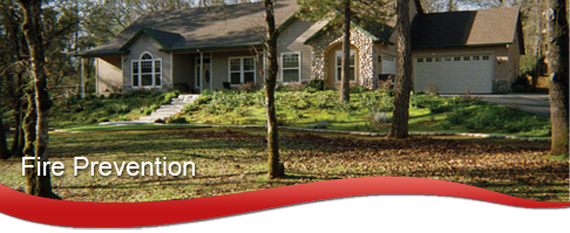
2016-2017 State Responsibility Area Fire Prevention Fund (SRAFPF) and Tree Mortality (TM) Grant Program
What – The State Responsibility Area Fire Prevention Fund (SRAFPF) and Tree Mortality (TM) Grant Program has $15.75 million available for projects that focus on supporting local efforts to remove dead and dying trees that pose a threat to public health and safety and for projects that reduce the wildfire threat to habitable structures within State Responsibility Areas (SRA).
Why– The SRAFPF and TM Grant Program provides funding for projects related to the removal of dead or dying trees, hazardous fuel (vegetation) reduction, fire prevention education, and fire prevention planning. Projects funded by the SRAFPF and TM grants will reduce the risk of fire ignition and spread in and adjacent to communities, educate owners of habitable structures about wildfire risks, allow for strategic, long-term planning to reduce the risk of wildfire to communities in the SRA throughout the State, or remove dead or dying trees that pose a threat to public health and safety.
Who -Eligible grantees may be local entities including, but not limited to, local government, fire districts, community services districts, water districts, and special districts with SRA within their jurisdiction, or certified local conservation corps, Fire Safe Councils, or other nonprofit organizations organized under Section 501(c)(3) of the federal Internal Revenue Code. Native American Tribes are eligible for the Tree Mortality Grants but are generally not eligible for the State Responsibility Area Fire Prevention Fund Grants, but can work with local districts or non-profit organizations to include desired project work in a grant proposal.
Project Types and Activities – Qualifying projects and activities include those related to hazardous fuel reduction, fire prevention planning, fire prevention education, and removal of dead, dying, or diseased trees. Examples of qualifying projects and activities include, but are not limited to, the following:
Hazardous Fuel Reduction
- Removing dead and dying trees
- Vegetation clearance in critical locations to reduce wildfire intensity and rate of spread
- Creation or maintenance of fuel breaks in strategic locations, as identified in CAL FIRE Unit Fire Plans, a Community Wildfire Protection Plan, or similar strategic planning document
- Removing ladder fuels to reduce the risk of crown fires
- Community level fire prevention programs, such as community chipping days, roadside chipping, and green waste bin programs
- Elective tree removal (thinning) to improve forest health to withstand wildfire
- Modification of vegetation adjacent to roads to provide for safer ingress and egress of evacuating residents and responding emergency personnel
- Reduction of fuel loading around critical firefighting infrastructure, including, but not limited to, fire hydrants, water drafting locations, and staging areas
Fire Prevention Education
- Fire prevention public education
Fire Prevention Planning
- Wildfire risk or related mapping
- Creation of strategic wildfire planning documents, such as a Community Wildfire Protection Plan (CWPP)
Removal of Dead, or Dying Trees
- Must support local efforts to remove dead and dying trees that pose a threat to public health and safety.
- Dead and dying trees greater than 10” in diameter and 20 feet in height and
- Dead and dying trees are reasonably accessible by equipment/machinery and
- Dead and dying tree removal within 300 feet of permanent structures and pose a structural threat to the residence. This does not include moveable or temporary sheds and outbuildings, or carports. or
- Dead and dying tree removal within 300 feet of serviceable roadways and pose a structural threat to roadways. or
- Poses a threat to public or private infrastructure.
- Projects should be located in a “Priority County” as identified by the Tree Mortality Task Force.
Examples of non-qualifying project types and activities
- Purchase of capital equipment greater than $100,000.
- Installation, creation, upgrade, or maintenance of fire protection features, such as roads, bridges, structure’s or water storage facilities.
- Any project submitted by a State, Federal, or for profit company or corporation.
- Projects or activities with indirect costs greater than 12%.
- Projects or activities utilizing CAL FIRE staff without corresponding reimbursements or requests seeking funding for services already provided by CAL FIRE.
- Removal of dead and dying trees that do not pose a threat to public health and safety.
How to apply –
Step 1– Project Application: Due no later than September 28, 2016 at 3:00pm PDT
The application must be completed in full at the time of submission. An incomplete application may result in disqualification of the application.
Step 2– Grant Selection: mid-November, 2016
Successful Grant Applicants will be notified in this stage.
Step 3– Grant Agreement: Due no later than January 31, 2016
During the Grant Agreement stage, the project applicant will prepare and provide additional administrative detail for the complete agreement package.
Step 4– Grant Award: late January to February 2017
In the Grant Award stage, official signatures are submitted and the grant is awarded.
SRAFPF & TM Grant Applications are now available and are due no later than September 28, 2016 at 3:00 PM PDT. All materials necessary to submit an application are included in the 2016-2017 State Responsibility Area Fire Prevention Fund and Tree Mortality Grant Program’s Procedural Guide. Further clarification of the application process may also be found in the Frequently Asked Questions document below.
- 2016-2017 SRA Fire Prevention Fund and Tree Mortality Grant Project Application Procedural Guide
- 2016-2017 SRA Fire Prevention Fund and Tree Mortality Grant Application (Best viewed with Internet Explorer IE)
- 2016-2017 SRA Fire Prevention Fund and Tree Mortality Grant Project Budget Sheet
- 2016-2017 SRA Fire Prevention Fund and Tree Mortality Grant Project Scope of Work (Template)
2016-2017 Frequently Asked Questions (FAQs)
When mailing in the forms, the address is:
Department of Forestry and Fire Protection
Attention: Grants Management Unit-SRAFPF & TM Grants
P.O. Box 944246
Sacramento, CA 94244-2460
Should you need additional information, you may contact a CAL FIRE representative at 916-445-8131 or SRAFPFGrant@fire.ca.gov.